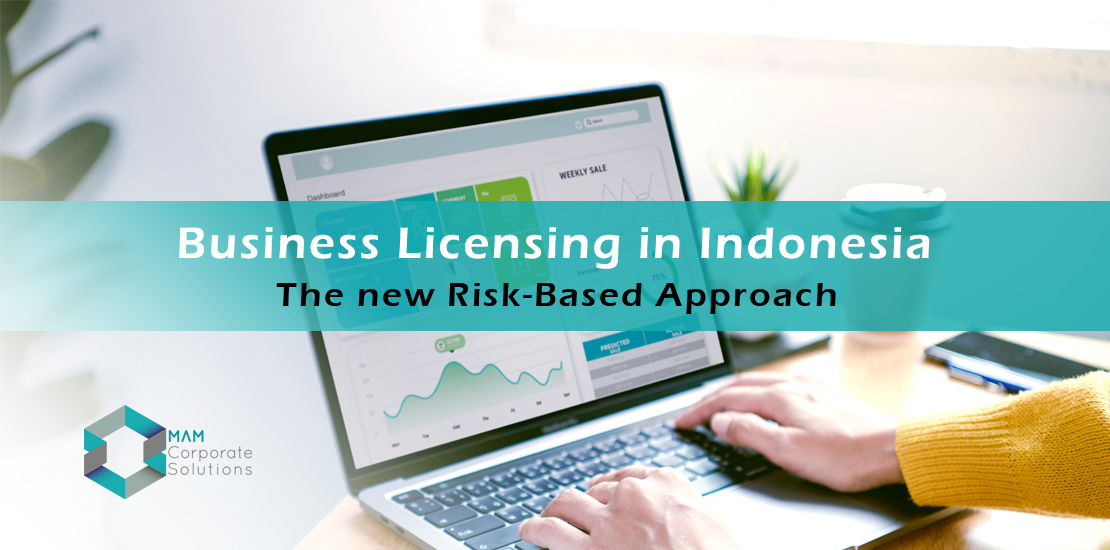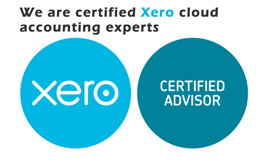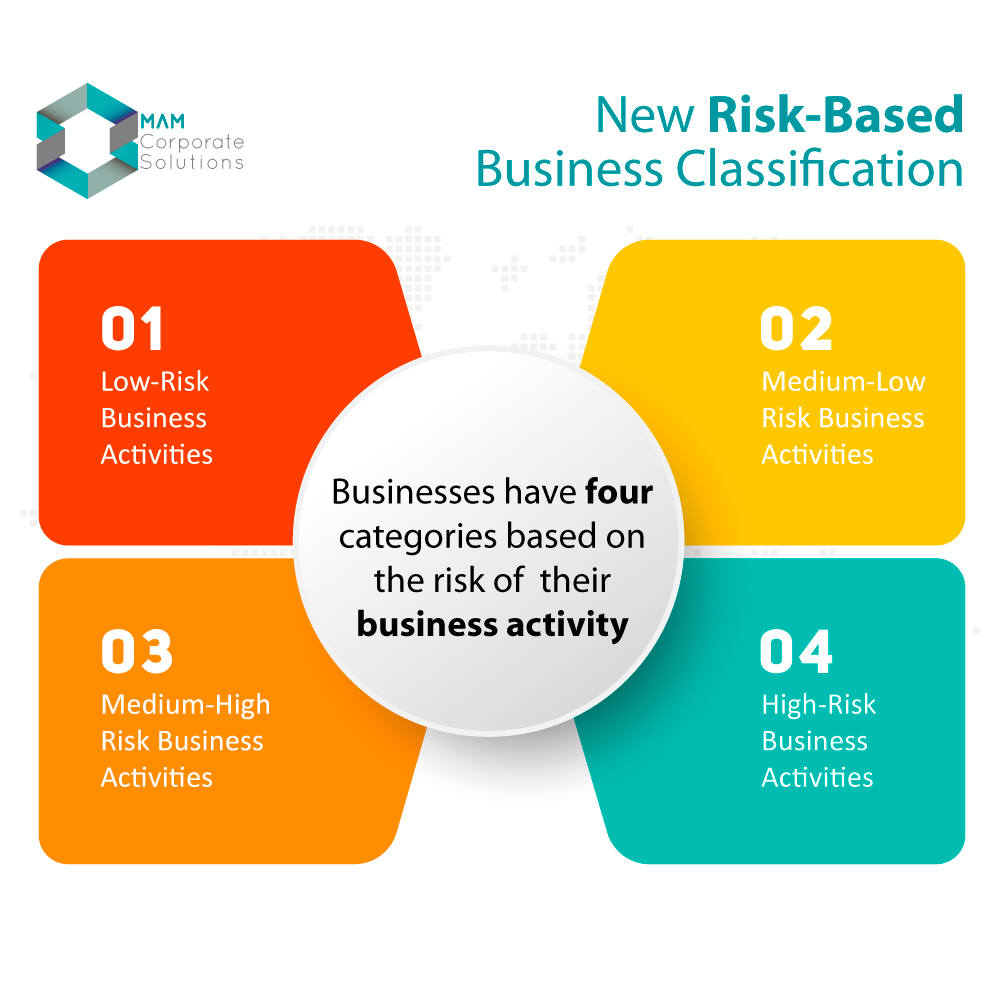
The pandemic has changed many things and one of them is how to obtain Business Licenses in Indonesia. The Indonesian government has taken a prudent step by promulgating the Job Creation Law in 2020. The aim is to attract more investment as part of the national economic recovery program.
Based on this Job Creation Law, several business regulations, including Business Licensing in Indonesia, underwent changes that could facilitate the investment climate in Indonesia. The most important is Regulation No. 5 of 2021 concerning Risk-Based Business Licensing which aims to examine licensing procedures in accordance with risk classification. In general, low-risk activities should have fewer regulatory requirements, allowing investors and businesses to start operations without delay.
MAM Corporate Solutions assists foreigners with all kinds of immigration and visa applications. To read more about our visa and immigration services, please click on the following links:
Getting to Know Risk-Based Business Licenses in Indonesia
Business licenses in Indonesia are now much easier. Before the passing of Omnibus Law, entrepreneurs were required to have a business license, commercial license, and/or operational permit before conducting business activities. In fact, in practice, the company’s activities often had no correlation between the scale and its ability to obtain a business license.
Now there is a new regulation which is PP 5/2021. This new regulation determines how to obtain business licenses in Indonesia based on analysis and business risk (both small and large businesses).
PP 5/2021 amends ex-ante licenses (meets all previous requirements) and allows ex-post licenses (requirements checked later), to make it easier for entrepreneurs for low and medium risk businesses
What is risk-based system of Business Licenses in Indonesia?
A risk-based business license is legality granted to businesses to carry out and/or their activities based on the level of potential for injury or loss from a hazard or a combination of the possibilities and consequences of a hazard.
This licensing system is regulated in Law Number 11 of 2020 concerning Job Creation (“UU Cipta Kerja”) and is further regulated more specifically in Government Regulation Number 5 of 2021 concerning Implementation of Risk-Based Business Licensing (“PP 5/2021”).
Procedure for determining the type of business licenses in Indonesia
Before applying for a business license, a business must determine the type of business license to be run. To determine this, the central government carries out the following procedures:
- Relevant business activity
- Evaluation of the level of danger and the potential for harm
- The level of risk and the rating of the business to be carried out
- Determination of the relevant type of business license
After the analysis process is complete, the business activities carried out by the applicant company are included in the classification of one of the following types of risk:
- Low-risk business;
- Medium-low risk business;
- Medium-high risk business; and
- High-risk business
The 21 Business Sector for Licensing Process
The government divides the business sectors for the licensing process into 21 business sectors as follows:
- Agriculture, forestry, and fisheries
- Mining and excavation
- Processing industry
- Procurement of electricity, gas, steam/hot water, and cold air
- Water treatment, wastewater treatment, waste material treatment and recovery, and remediation activities
- Construction
- Wholesale and retail trade; car and motorcycle repair and maintenance
- Transportation and warehousing
- Provision of accommodation and provision of food and drink
- Information and communication
- Financial and insurance activities
- Real estate
- Professional, scientific, and technical activities
- Leasing and leasing activities without option rights, employment, travel agencies and other business support
- Government administration, defence, and social security mandatory
- Education
- Human health activities and social activities
- Arts, entertainment, and recreation
- Other service activities
- Household activities as an employer; activities that produce goods and services by households that are used to meet their own needs
- Activities of international agencies and other extra international agencies.
Procedure for Obtaining a Risk-Based Business License in Indonesia
Online Single Submission Risk-Based Approach (OSS-RBA) is a system that grants business licenses in Indonesia to businesses to start and run their business activities. Unlike the OSS 1.1 system, which does not base licensing on the risk and scale of business activities, the OSS RBA system assesses the application for business licenses in Indonesia based on the level of risk and the scale of business activities.
The procedure for obtaining a risk-based business license in Indonesia is quite simple. Here are the steps:
1. Obtaining a Business Identification Number (NIB)
The first stage of the Risk-Based Licensing procedure is to obtain a Business Identification Number (NIB) through the Online Single Submission (OSS) system. The requirements needed are as follows:
- Business profile,
- Capital structure,
- Taxpayer Identification Number (NPWP),
- The 5 digits business activity code according to the Indonesian Standard Classification (KBLI)
- Proposed business location
- Suitability of Space Utilization Activities
2. Business License Classification
According to PP 5/2021, the next step is to classify the businesses based on the level of risk into one of the following classifications. Please note that the lower the risk a company has, the easier it is to comply with licensing regulations.
3. Low risk business activities
Low-risk business activities only need to obtain a NIB before they can start operating. In addition to functioning as the company’s formal identity, the NIB also functions as an import identification number.
4. Business Activities with Medium-Low Risk
Before operating, businesses in this category must obtain a NIB and Standard Certificate. Standard Certificates are statements of compliance with a certain business or product standards, which must be submitted through the OSS system.
5. Business activities with medium-high risk
Business activities with medium-high risk require NIB and a Standard Certificate. Standard Certificates must be verified by the central or local government.
6. Business activities with high risk
High-risk business activities need to obtain a NIB and a permit to operate. Permits will be issued after the business meets certain requirements and verification set by the central or local government which may include an environmental impact analysis.
Contact MAM Corporate Solutions
MAM Corporate Solutions has expertise in obtaining business licenses in Indonesia for its valued clients. If you need assistance to apply for a business license, you can contact our expert anytime by Clicking here or provide below as much detail about your inquiry as possible below to receive the most relevant response.
Latest insights
If you want to meet and discuss, you can easily make an appointment here.
Thanks to the efforts of the MAM Corporate Solutions team, we can now sell our products under the banner of the incorporated company. We appreciate how the MAM Corporate Solutions’ team is responsive and informative. The team’s best asset is their consistent communication.


